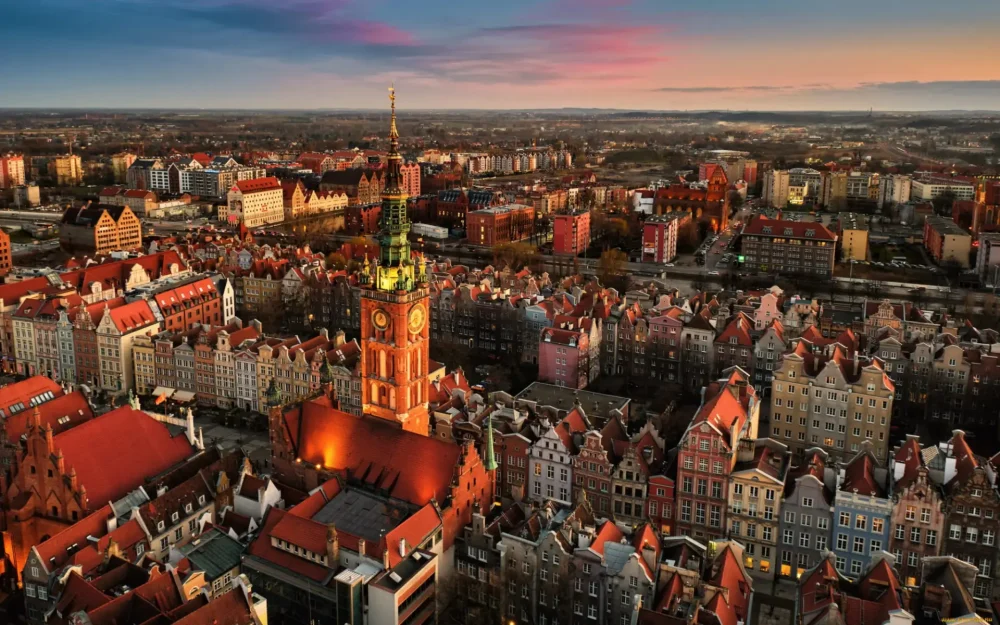The global real estate market is not just about square meters, but a space of opportunities. Against the backdrop of turbulence in the economy and politics, foreign ownership has become not a symbol of luxury, but a risk hedging tool, a channel for diversification, and strategic capital migration. Eastern and Western Europe, the Middle East, Southeast Asia, South America — each geography offers unique combinations of profitability, tax regimes, living conditions, and growth scales. Poland, for example, has become one of the new hubs for investment demand due to stable macroeconomics, market digitalization, and accessible credit leverage.
European Arena: Where Stability is Sought
Poland, Germany, Portugal, Hungary — locations attract investors with stable jurisdiction, property rights protection, and clear deal architecture. Why buy real estate abroad in these countries? The answer lies in the opportunity to earn stable income with a low entry threshold.

In Poland, for instance, the average price per square meter in Warsaw is around 2,500 euros, while in Berlin it is already 5,000 euros. The market shows an annual growth of up to 7–9%, and tenant demand remains consistently high — especially in Krakow and Wroclaw due to IT clusters and student flows. Renting a studio in the center of Krakow brings in about 600 euros per month, with an annual post-tax yield reaching 5.1%.
Countries within the Schengen area not only allow earning but also free movement, opening up prospects for both leisure and relocation. Buying real estate abroad becomes a platform for obtaining a residence permit, access to healthcare systems, educational institutions, and banking products.
Profitable Mathematics: Why Buy Real Estate Abroad
The economic feasibility of a purchase begins with calculation. Why buy real estate abroad if domestic yields are falling and depreciation costs are rising? A well-structured model provides the opportunity to bypass inflationary losses and earn on two fronts — rent + capitalization.
Example calculation in the Polish market:
- Property: two-bedroom apartment in Lodz with an area of 55 m².
- Cost: 120,000 euros (including registration and renovation).
- Rental income: 750 euros per month.
- Taxes and maintenance: around 80 euros.
- Net profit: 670 euros per month.
- Annual yield: ≈ 6.7%.
The capitalization rate shows that the property will fully pay off within 14–15 years without considering price growth. Additionally, annual housing appreciation in Poland ranges from 5 to 11% depending on the province.
Legal Control: Legal Nuances of Ownership
Each country offers unique ownership conditions. Why buy real estate abroad if the legal framework is not transparent? This is why Poland and the Czech Republic have become points of attraction: here, ownership can be registered both to individuals and legal entities without the need for local registration.
In Poland, a non-resident gains ownership rights after approval by the Ministry of Internal Affairs, but when buying an apartment in a multi-story building, this approval is not required. The transaction process is notarially controlled, and registration takes between 14 and 21 days. All contracts are accompanied by electronic extracts from the cadastre.
By purchasing real estate abroad, the owner gains access to tax deductions, simplified inheritance opportunities, and property insurance. The Polish market also offers tax benefits for EU residents, and rental income when registering as a sole proprietor is taxed at a fixed rate of 8.5%.
Why Buy Real Estate Abroad: Migration Effect
Why buy real estate abroad if it’s not just about income? The question opens up a strategic level — managing the location of life. Europe offers flexible residency programs based on ownership, especially popular in Portugal, Greece, Latvia, Spain, and Poland.
The Polish residency program based on real estate allows obtaining a temporary residence permit for up to 3 years with the possibility of extension, and after 5 years, applying for permanent residency. In addition, residents gain access to public healthcare, schools, and the labor market.
Quality of life, safety, ecology, and social standards become compelling arguments. In cities like Wroclaw, Poznan, or Katowice, for 150,000 euros, one can purchase a spacious apartment with underground parking and panoramic windows. In neighboring Germany, a comparable level of service would cost 2.5 times more.
New Formats: Where Value Grows
Buying real estate abroad is increasingly directed towards non-standard formats. Investors are choosing smart apartments, lofts, mini-hotels, and houses with plots in low-rise construction. Eastern European countries, including Poland, are unlocking the potential of suburbanization — demand for cottages within a 15–30 km radius of major cities is growing by 11–13% annually.
Developing formats that investors most commonly invest in:
- Aparthotels in tourist centers (Krakow, Zakopane).
- Mini-complexes with shared spaces (co-living).
- Cottages in agro-regions for weekend rentals.
- Lofts in former industrial zones.
Investors purchasing such real estate abroad gain an advantage in a dynamic segment where competition is still minimal, and profitability exceeds traditional residential properties.
Simplified Control and Remote Management Scheme
Market digitalization has simplified property ownership in other countries. Through tenant management platforms and automated calculations, properties can be controlled remotely using reporting, video analytics, smart locks, and remote cleaning services.

Why buy real estate abroad if management involves risks? Today, routine tasks can be delegated by contracting with a management company in Poland, paying utility bills through a banking API, and receiving a tax report in one click. This reduces the workload and opens the way to a multi-property portfolio.
Conclusion
Every euro invested works towards stability and capital development. Poland, as an example of balance between accessibility, profitability, and predictable growth, demonstrates why buying real estate abroad even in uncertain conditions is an instrument that protects, multiplies, and forms a platform for the future.
 en
en  ru
ru  de
de  ar
ar  es
es  nl
nl  hi
hi  fr
fr  it
it  pt
pt  el
el 



